All Formats & Editions
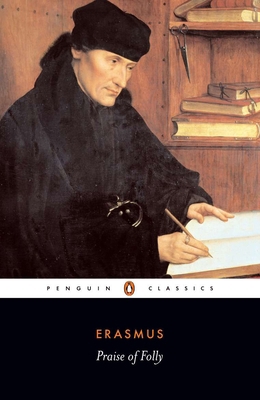
Praise of Folly
Erasmus of Rotterdam (c. 1466-1536) is one of the greatest figures of the Renaissance humanist movement, which abandoned medieval pieties in favour of a rich new vision of the individual's potential. Praise of Folly, written to amuse his friend Sir Thomas More, is Erasmus's best-known...

The Praise of Folly: Updated Edition
Desiderius Erasmus (1466-1536) was a Dutch humanist, scholar, and social critic, and one of the most important figures of the Renaissance. The Praise of Folly is perhaps his best-known work. Originally written to amuse his friend Sir Thomas More, this satiric celebration...
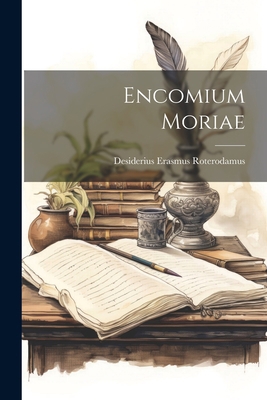
Encomium Moriae
This book is a satirical essay on the shortcomings of human nature. Desiderius Erasmus Roterodamus's work is a classic example of Renaissance literature and a must-read for anyone interested in the period and its literary output. This work has been selected by scholars...

Praise of Folly and Letter to Maarten Van Dorp
Erasmus of Rotterdam (c. 1466-1536) is one of the greatest figures of the Renaissance humanist movement, which abandoned medieval pieties in favour of a rich new vision of the individual's potential. Praise of Folly, written to amuse his friend Sir Thomas More, is Erasmus's best-known...
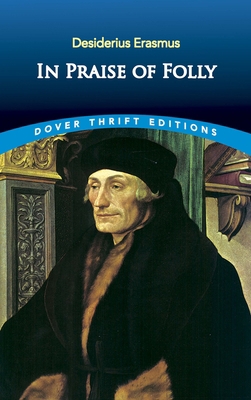
In Praise of Folly
This witty, influential work by one of the greatest scholars of the Renaissance satirizes the shortcomings of the upper classes and religious institutions of the time. The most effective of all Erasmus's writings -- ripe with allusions, vignettes, and caricatures -- the literary...

In Praise of Folly
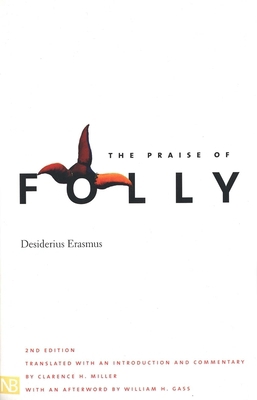
The Praise of Folly
First published in Paris in 1511, The Praise of Folly has enjoyed enormous and highly controversial success from the author's lifetime down to our own day. It has no rival, except perhaps Thomas More's Utopia, as the most intense and lively presentation of the literary, social,...
![Elogio de la locura [Spanish] 1482070855 Book Cover](https://i.thriftbooks.com/api/imagehandler/l/5B04429A12BF18FC1C7E9FC1CC55A6D2BE4F9E4D.jpeg)
Elogio de la locura [Spanish]
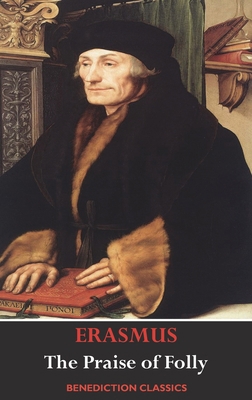
The Praise of Folly (Illustrated by Hans Holbein)
![Moriae Encomium [Latin] 146998430X Book Cover](https://i.thriftbooks.com/api/imagehandler/l/B454A0D848F393061AA28637CB3C8D7056AD9798.jpeg)
Moriae Encomium [Latin]
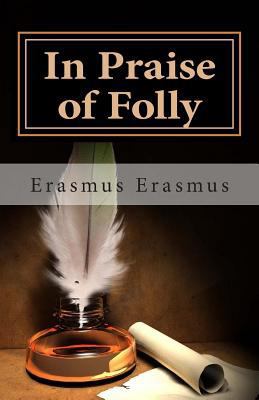
In Praise of Folly
In Praise of Folly is an essay written in 1509 by Desiderius Erasmus of Rotterdam and first printed in 1511. The essay was inspired by De Triumpho Stultitiae, written by Italian humanist Faustino Perisauli, born at Tredozio, near Forl . Erasmus revised and extended the work,...
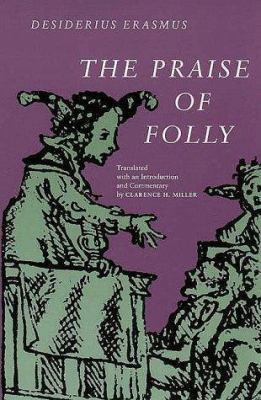
The Praise of Folly
First published in Paris in 1511, The Praise of Folly has enjoyed enormous and highly controversial success from the author's lifetime down to our own day. The Folly has no rival, except perhaps Thomas More's Utopia, as the most intense and lively presentation of the literary,...

The Praise of Folly
Praise of Folly is an essay written in Latin in 1509 by Desiderius Erasmus of Rotterdam and first printed in 1511. Inspired by De Triumpho Stultitiae, written by the Italian humanist Faustino Perisauli, born at Tredozio, near Forl . Praise of Folly is considered one of the most...
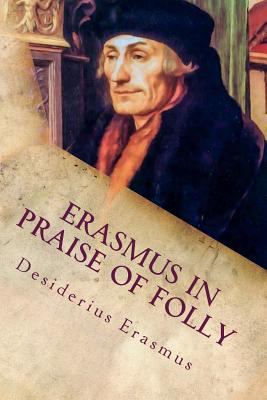
Erasmus In Praise of Folly: Illustrated
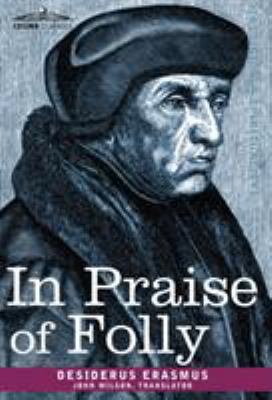
In Praise of Folly
![Moriae encomium [Latin] 1502994860 Book Cover](https://i.thriftbooks.com/api/imagehandler/l/605DDF54B1190782ACACF632263016A26A6ECD8F.jpeg)
Moriae encomium [Latin]
"Moriae encomium" from Erasmus. Desiderius Erasmus Roterodamus (1469-1536), theologus, paedagogus, homo litteratus, vir doctus, ?humanistarum princeps?.
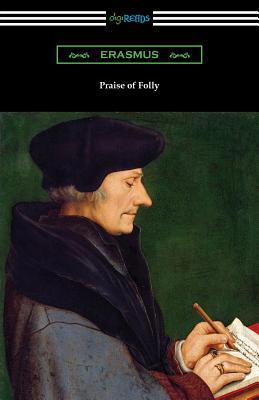
Praise of Folly
Written in Latin in 1509 and published in 1511, "Praise of Folly" by Dutch humanist and scholar Desiderius Erasmus is considered one of the most important works of literature in Western Civilization. The essay is a classic satirical work in the style of Lucian, the ancient...
![Éloge de la Folie [French] 2382742011 Book Cover](https://i.thriftbooks.com/api/imagehandler/l/40F994D2923667A7F52A89ECF2995DF9508FD02A.jpeg)
Éloge de la Folie [French]
Erasme dresse dans ?loge de la folie un tableau peu reluisant d'une humanit? orgueilleuse et arrogante. Il fait parler la d?esse de la Folie qui professe une critique virulente des diverses professions et cat?gories sociales: les th?ologiens, les ma?tres, le haut clerg?, mais...

The Praise of Folly (Modern Library, 331.1)
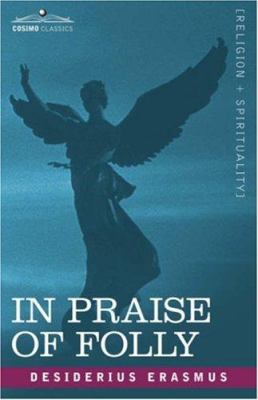
In Praise of Folly
![THE PRAISE OF FOLLY And a Short Life of the Aut... [Unknown] B00PMT2B42 Book Cover](https://m.media-amazon.com/images/I/41IQ0-qW5-L._SL500_.jpg)
THE PRAISE OF FOLLY And a Short Life of the Aut... [Unknown]
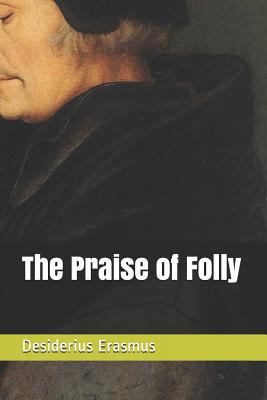
The Praise of Folly
In Praise of Folly, also translated as The Praise of Folly, is an essay written in Latin in 1509 by Desiderius Erasmus of Rotterdam and first printed in June 1511. Inspired by previous works of the Italian humanist Faustino Perisauli (it) De Triumpho Stultitiae, it is a satirical...
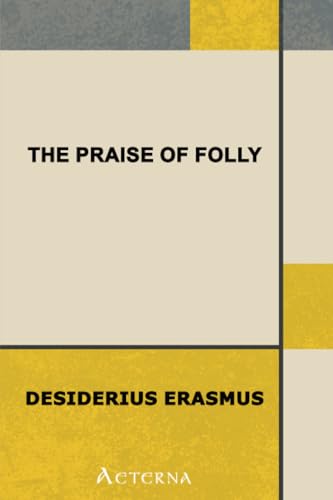
The Praise of Folly
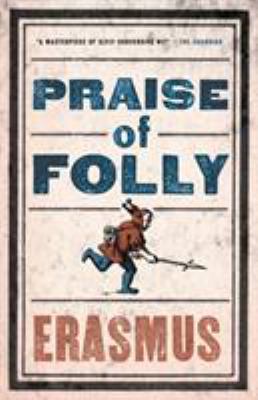
Praise of Folly
In addition to a sparkling modern translation of Praise of Folly, this volume also includes other works by Erasmus: Pope Julius Barred from Heaven, Epigram against Pope Julius II and a selection of his Adages. Together with the extensive annotation of the texts, these help to...




